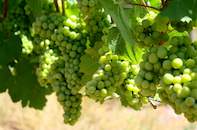
The KWV has a long and illustrious history, dating back more than 100 years. The company was founded by Charles Kohler, a wine farmer who envisioned a bright future for the country’s wine industry and unified grape farmers into a single entity - the KWV.
KWV was established in 1918 with the aim of stabilising, supporting and structuring a young, struggling wine industry. Until the early 1990s, when world markets opened to South African wine, KWV played a central role in regulating the industry.
In 1924, the KWV Act was passed. KWV became responsible for specific administrative responsibilities and became the sole exporter and importer of surplus alcohol. Two years later, the company became the one of the first brandy producers in the Cape, and exported their bottlings to the UK.
In 1930, KWV’s impressive Cathedral cellar in Robertson was completed, known for its dome-like ceiling and beautiful lighting. Over the years, it has been refurbished and is now a popular tourist attraction. Ten years later, the KWV’s responsibilities expanded to include determining the minimum price for all wines.
In 1974, KWV made a significant contribution to the highly acclaimed South African Wine of Origin (WO) scheme that was initiated in 1972 and officially implemented in 1973. The WO system changed from a certification system to an origin system in 1979, and thanks to KWV and its various contributors, has continued to evolve into the highly lauded tour de force it is known for today.
Until the mid-1990s, KWV played a vital role in regulating the industry until the abolisment of apartheid, when world markets opened to South African wine exports. In 1997, KWV converted from a co-operative to a company, with restrictions on trading of shares.
Throughout the early 2000s the company won numerous international awards and became more involved in the restructuring of the wine industry, intent on creating opportunities for previously disadvantaged people.
Over the years, various leadership roles within KWV were filled by now-legendary wine and spirits pioneers, including the ‘father of pinotage’ Prof. Izak Perold, as well as Buks Venter, Ritzema de la Bat, Danie de Wet, Lourens Jonker, Charles Theron, Neil Ellis, Johann Krige and Albert Eksteen. Their contributions lead to generational empires of wine farms, estates and cellars.
 For most of the 20th century, co-operatives defined the landscape of South African wine before moving into the back row to make way for ente...
For most of the 20th century, co-operatives defined the landscape of South African wine before moving into the back row to make way for ente...